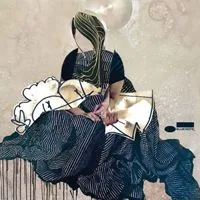Styles: Guitar Jazz
Year: 2022
File: MP3@320K/s
Time: 57:49
Size: 133,2 MB
Art: Front
(2:25) 1. Dear Old Friend (For Alan Woodard)
(5:15) 2. Claude Utley
(5:43) 3. The Pioneers
(3:46) 4. Holiday
(2:47) 5. Waltz For Hal Willner
(5:09) 6. Lookout For Hope
(6:17) 7. Monroe
(3:46) 8. Wise Woman
(3:48) 9. Blues From Before
(4:13) 10. Always
(3:03) 11. Good Dog, Happy Man
(4:49) 12. Invisible
(6:42) 13. Dog On A Roof
Two years after issuing his acclaimed trio album Valentine, Grammy Award-winning guitarist and composer Bill Frisell returns with ‘Four’, a stunning meditation on loss, renewal, and those mysterious inventions of friendship.
Frisell’s third album for Blue Note Records since signing with the label in 2019 proffers new interpretations of previously recorded originals as well as nine new tunes. The session brings together artists of independent spirits and like minds: Blue Note stablemates Gerald Clayton on piano and Johnathan Blake on drums, and longtime collaborator Greg Tardy on saxophone, clarinet, and bass clarinet. ‘This combination of people had been floating around in the back of my mind since before the pandemic,’ says the Brooklyn-based artist.
Guitarist Bill Frisell, on his third recording for Blue Note, expands the quiet, explorative music he delivered on 2020’s Valentine through a much different instrumental configuration. Much of the music is about loss, the deep ties of friendship, and a few that point to renewal. The music leans far more into contemporary jazz than into the kind of folk and Americana we associate with Frisell, but races do remain. There are 13 tracks, all composed by Frisell, nine of which are new and four reinvented from previous recordings.
Longtime collaborator Greg Tardy on tenor saxophone, clarinet, and bass clarinet is a major force along with Blue Note artists Gerald Clayton on piano and Johnathan Blake on drums. Conspicuously absent is a bassist, thus leading to much lighter, spacey sound that developed as Frisell entered the session, not with through-composed pieces, but fragments as he encouraged spontaneous and open interaction. Consider that five of these tracks feature clarinet, electric guitar, piano, and drums not a configuration one often hears. The music is highly textural and melodic, eschewing the conventional head-solo-solo-head but instead collectively building variation off melodies, or in some case, simply off chords.
Frisell developed the concept during the pandemic, during a time when we lost so many talented artists and friends, giving the album an overall melancholy tone. This is somewhat divergent, but it recalls for this writer the pop album from Australians Paul Kelly and Charlie Owen favorite funeral songs, 2017’s Death’s Dateless Night, which is vastly different musically but similar in tone and spirit, balancing the reverent with the celebratory. Suffice it to say that while folks often spend hours on playlists for a wedding, few would do the same for a funeral. Yet, if they did so, Frisell’s music should be at the top of such a list. Melancholy doesn’t necessarily imply maudlin.
There’s sublime, flowing beauty in these tracks, beginning with “Dear Old Friend,” written for Frisell’s childhood friend, Alan Woodard, who Frisell had known since the seventh grade. The title also applies to one of Frisell’s closest friends, the late cornetist and Blue Note artist Ron Miles, with whom Frisell had played frequently and to whom he dedicates the album. Tardy carries the angelic melody on clarinet, with a tone so airy and pure, that sounds flute-like. The melody itself has echoes of “Swing Low, Sweet Chariot” as Frisell and Clayton tenderly and texturally wrap Tardy’s lines. “Claude Utley,” written for Frisell’s painting friend who passed this past year, harnesses the same instrumentation but it is looser in terms of any distinct melody.
Tardy plays tenor on the elegiac “The Pioneers,” one of four where he plays that instrument, using bass clarinet on another, both tenor and bass clarinet on one, while yet another is a Clayton solo piano piece. This one is a great example of how Frisell and Clayton play contrapuntally and in call-and-response patterns to Tardy’s yearning melody. Similarly, Tardy’s long tenor tones in the contemplative “Invisible” leave plenty of space for the others, a tonal departure from Frisell on baritone guitar. “Holiday” moves away from the smooth into a joyous, playful, jagged, syncopated vein, proving to be a strong vehicle for Blake, one of the most versatile drummers in contemporary jazz. Clayton’s intro leads into a simple but memorable melody for Tardy’s tenor on “Waltz for Hal Willner.”
Frisell revisits his classic the noirish, 1988 “Lookout for Hope,” with Tardy on bass clarinet playing contrapuntally to the guitar and piano in a haunting fashion. “Monroe” shows the breadth of Frisell’s writing as the quartet sneakily climbs into blues, with Tardy on both the tenor and bass clarinet, articulating the theme on each. The reedist returns to tenor on the closing “Dog on the Roof,” a languid, mysterious, electronically fueled piece, bordering on free jazz, both gathering a casual funky momentum as it evolves.
“Wise Woman” echoes Ornette Coleman in its harmonic palette while “Blues from Before” is more jagged, syncopated, and searching in an even freer mode, with Tardy on exploring every possible reach of the clarinet between the two. The latter is very complex rhythmically, but Blake expertly navigates the quartet through it. This leads to a minimalist solo piano excursion by Clayton on “Always,” airy, edgy, and seriously contemplative. “Good Dog, Happy Man” gets a makeover from its 1990 version, as Frisell plays both acoustic and electric guitars and Tardy on clarinet trades cascading melodies with both the guitarist and pianist in this gently flowing, uplifting tune. https://jazzbluesnews.com/2022/11/11/cd-review-bill-frisell-four-2022-video-cd-cover/
Personnel: Bill Frisell: Guitar; Greg Tardy: Tenor Saxophone, Clarinet & Bass Clarinet; Gerald Clayton: Piano; Johnathan Blake: Drums
Four















